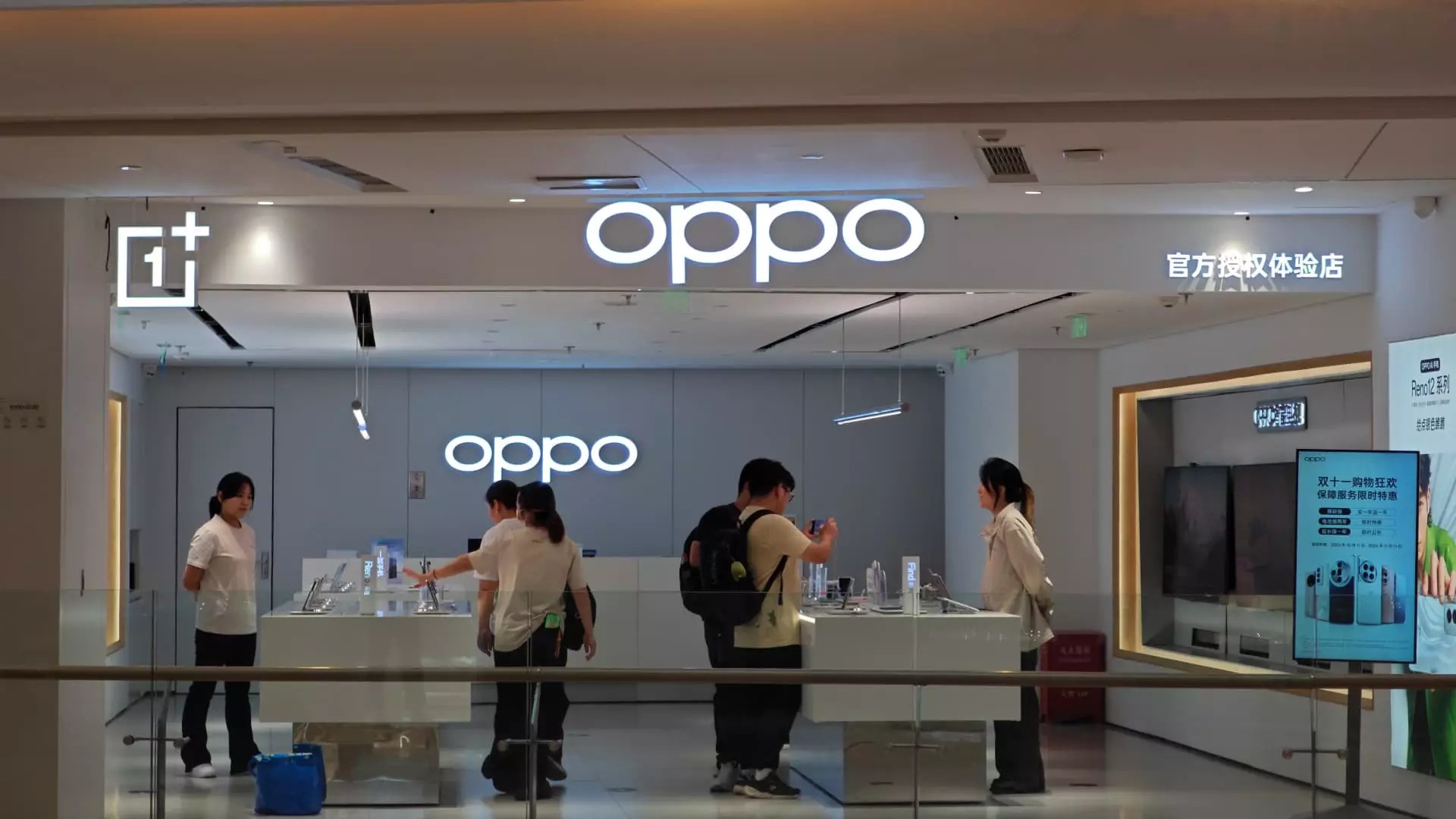Amidst the clamor of the smartphone market, wherein every player seeks to establish dominance, Oppo’s latest venture has emerged as a strikingly bold shift towards user privacy. Recent announcements from the Chinese tech giant indicate that the firm is not merely following the crowd but is instead crafting its own path in a digital landscape increasingly fraught with privacy concerns. By launching its Private Computing Cloud, Oppo is sending a clear signal that it takes user data privacy seriously, even as it wades deeper into the realm of artificial intelligence (AI).
This initiative is not just a reactionary measure; it sets a precedent for how technology companies can prioritize user confidentiality while still pushing the envelope in innovation. By allowing users to communicate and conduct their online activities without the apprehension of constant surveillance from AI systems, Oppo is challenging the status quo, particularly in a market notoriously known for its data-hungry practices.
A Strategic Partnership with Google: More than Just Technology
The collaboration with Google, focusing on Confidential Computing software, leverages sophisticated encryption to shield user data from prying eyes, including Oppo’s own. This is particularly noteworthy given the broader context of Chinese tech manufacturers who often face scrutiny over their handling of user information. While rivals like Honor continue to march to similar tunes, Oppo’s approach seems distinctly reformative.
By adopting measures reminiscent of Apple’s data privacy protocols, Oppo is effectively asserting itself in a competitive arena where trustworthiness can often outweigh feature lists. This gamble may pay off significantly, transforming how consumers perceive data security in their technology tools. The growing skepticism regarding tech giants’ sincerity about privacy can serve as a fertile ground for Oppo to cultivate an audience weary of the status quo.
Mimicking Apple’s Moves: Should You Be Alarmed? Or Inspired?
There is an argument to be made that Oppo’s imitation of Apple’s framework could be seen as an unoriginal strategy. However, this underestimates the significance of context. Apple’s approach, while undoubtedly effective, is underpinned by longstanding consumer trust cultivated over years. Oppo’s alignment with such a model at this critical juncture reveals its aspiration to be seen as more than just another smartphone manufacturer—it aims to be a safe haven for data-sensitive consumers.
The question this poses is striking: Can a company with roots in a country often criticized for privacy violations steer itself clear of that narrative? If Oppo can successfully pivot its identity toward user-centric privacy without losing its innovative edge and market share, it might serve as a transformative case study for other brands navigating similar waters.
AI Features That Offer More than Just Convenience
Beyond the foundational privacy concerns, Oppo’s impending rollout of AI features such as call translation and voice transcription showcases its commitment to enhancing user experiences. While AI buzzwords abound, the crucial aspect is ensuring that these features respect user autonomy and security. Innovations like these could lure in an audience that values both functionality and ethical considerations in technology.
As Oppo integrates Google’s Gemini models into various applications, it appears to be gearing up for a significant leap in AI capabilities. The potential of an “agentic AI” capable of performing tasks on behalf of users suggests that language processing and contextual understanding may soon undergo substantial refinements. By the end of 2025, aiming for a user base of 100 million indicates a level of ambition that, if realized, could redefine the mobile user experience.
Navigating the Landscape of Trust and Transparency
Critics will likely argue that such significant investments in privacy could be a mere façade—a marketing ploy to attract consumers disenchanted with current industry practices. Still, the tech landscape is rife with instances of brands pivoting under the pressure of consumer expectations. Oppo’s proactive stance may not only resonate with users but also challenge competitors to elevate their commitments to data privacy.
The perception of technological advancement as synonymous with invasive data collection must evolve. As the market begins to witness companies like Oppo putting their reputations on the line for user trust, perhaps it symbolizes a broader shift toward accountability in technology.
The stakes are undoubtedly high—the world is watching, and so are consumers. The battle for trust in the tech industry may soon unfold, with Oppo’s innovative moves positioning it as a potent contender in a space rife with uncertainty. As we delve into this evolving narrative, the quest for privacy and security in technology may not only yield a better user experience but also foster a more ethical digital environment.


Leave a Reply